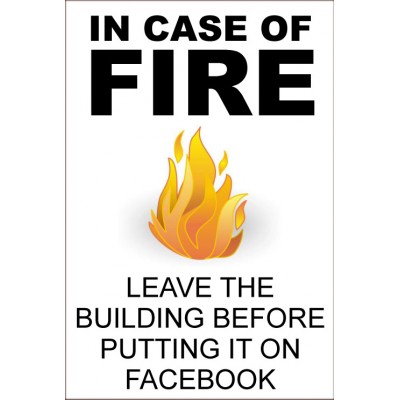In part three of our four-part blog series, we take a look at how hazardous substances are ingested through the body. It sounds pretty simple – we swallow them right? It’s actually a little more complicated than that. Let’s have a look.
Topics: work safety, HSE, HSE best practice, Environmental hazards, Hazardous chemical substances
Granted, this could be a matter of opinion but it’s a reality that showing (in other words, demonstrating), is usually the most effective way to teach others ‘best practice’. We’re talking about videos.
Topics: work safety, HSE, HSE best practice, HSE and social media, social media
Topics: work safety, HSE best practice, HSE and social media, social media
Almost there, and this is the last active step you’ll take when it comes to rolling out your health and safety training. Today we’re talking evaluation. And why is it so important?
Topics: work safety, HSE, training, Safety training, HSE training
Topics: work safety, training, Safety training, HSE training, training programme
We’re now halfway through unpacking the process of rolling out your workplace safety training, and it’s time to move on to how to develop your training materials.
Topics: work safety, Occupational Health and Safety, Safety training, HSE training
Risk management is usually the responsibility of risk managers/professionals in separate business units working with different risk management systems. This contributes to a lack of risk information sharing and a lack of understanding of the organisation’s key risks, which prevents optimum results from being achieved. Although business units may function in isolation, risks certainly do not.
Topics: work safety, Risk management, HSE, integrated, software, SHE, Incident Investigation, Reporting
How to apply adult learning principles in workplace safety training
We’ve covered how to implement a training-needs analysis. In the second of our blogs on rolling out HSE training in the workplace, we focus on the adult learning principles you’ll need to adopt for the training to be effective. The workers you want to train are adults, and adults share certain characteristics that make training more effective for them (or less effective if you ignore the characteristics). If your training recognises and respects these adult learning principles, it is likely to be more effective. If your training disregards these principles, you’re wasting training money.
Topics: work safety, Safety training, HSE training, training programme, adult learning
| We should always, always take safety seriously, but safety information can be both informative and entertaining. Now that we’ve got your attention, take a look at these nine safety facts that seem crazy, but are in fact 100% true. |
Topics: work safety, Occupational Health and Safety, Safety
How often should I retrain my staff to remain legally compliant?
Your workplace is ticking along, everyone has undergone the required health and safety training at some point, and it appears that everyone understands how to prevent and minimise risk. So there’s nothing more for you to do – right? Well, no actually.
As any mechanic worth his salt will tell you, maintenance is an ongoing, essential requirement to ensure things keep running smoothly. In fact, just because certain training may not be legally required, it doesn’t mean your company doesn’t need it. So here’s what to consider when it comes to retraining your employees.
Topics: work safety, HSE, CEO, training, Budget














